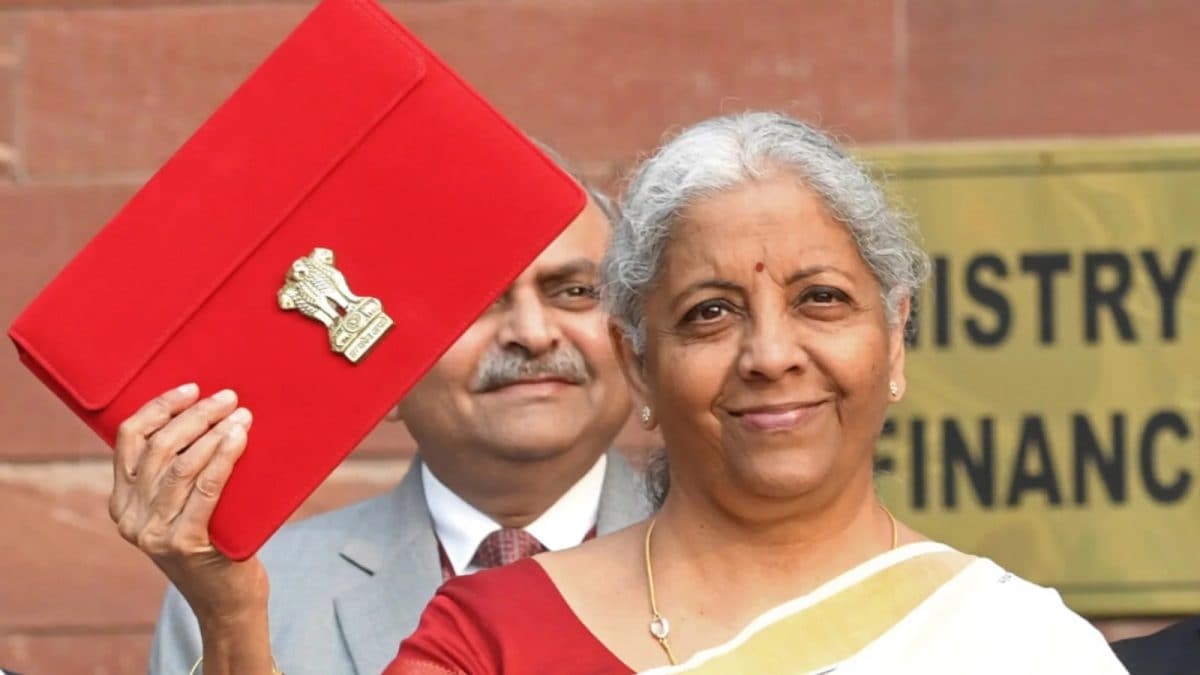Business
FTSE 100 reaches new high as gold and oil surge

Blue chips in London closed up sharply on Thursday, after hitting a new record peak on commodity price strength and well received trading updates.
The FTSE 100 index closed up 63.57 points, 0.7%, at 9,578.57. It had earlier established a new best level of 9,594.82.
The FTSE 250 ended 131.62 points higher, 0.6%, at 22,361.41 and the AIM All-Share advanced 7.26 points, 1.0%, at 775.29.
Boosting London’s lead index, there were gains in commodity prices with oil and gold moving ahead strongly.
Oil majors Shell and BP climbed 2.9% and 3.7%, respectively, as Brent crude surged.
Brent oil traded at 65.75 US dollars a barrel, up from 62.61 dollars late on Wednesday.
The rise followed co-ordinated US-EU sanctions aimed at cutting off Russian oil revenues.
Smaller energy producers tracked the move higher, with Tullow Oil jumping 7.4% and Harbour Energy up 5.1%.
US President Donald Trump said the sanctions would target Rosneft and Lukoil, Russia’s two largest oil companies, after talks with Vladimir Putin “went nowhere”.
He described the measures as “tremendous”, but said he hoped they would be short-lived, adding: “We hope that the war will be settled.”
The move was joined by another round of punishments by the EU as part of attempts to pressure Moscow to end its three-and-a-half-year invasion of Ukraine.
“These new sanctions are likely to have a real impact,” said Arne Lohmann Rasmussen, an analyst at Global Risk Management.
But Bridget Payne, analyst at Oxford Economics, expects any oil price strength to be limited.
“This is a significant escalation, but it doesn’t remove barrels from the market. It might add a modest risk premium if banks comply strictly, but any rally is likely to be limited by the surplus outlook,” Ms Payne wrote.
She expects the impact to fall mainly on Russian revenues rather than global supply.
Meanwhile, gold continued its roller-coaster week. The yellow metal traded at 4,146.49 dollars an ounce on Thursday, up from 4,028.64 dollars on Wednesday.
This saw Fresnillo rise 5.3% and Endeavour Mining jump 3.0%.
The price of gold fell sharply on Tuesday and Wednesday after recent strong gains.
Analysts at Goldman Sachs wrote: “While a correction in speculative upside call options structures likely contributed to the selloff; we believe sticky, structural buying will continue further, and still see upside risk to our 4,900 dollar end-2026 forecast from growing interest in gold as a strategic portfolio diversifier.”
Trading news also gave the FTSE 100 a leg up on a busy day of updates, with Rentokil Initial soaring 8.3% and London Stock Exchange Group jumping 7.2%.
Rentokil’s gains came as it reported improved trading in its North American business, fuelling optimism that plans to turn around the unit are working.
The Crawley, West Sussex pest control and hygiene services business said revenue rose 4.6% at constant currency to 1.81 billion dollars (£1.36 billion) in the three months to September from 1.72 billion dollars (£1.29 billion) the year prior. Organic sales growth was 3.4%, picking up speed from 1.6% in the second quarter of 2025.
Revenue growth in North America was 4.6% with organic revenue growth of 3.4%. That organic sales growth represented an improvement from 1.4% in the second quarter and was ahead of 1.8% consensus.
RBC Capital Markets said: “We believe this statement highlights that Rentokil is slowly getting back on track and heading in the right direction. For patient investors, we continue to see Rentokil’s issues as fixable and see significant re-rating potential over time.”
London Stock Exchange climbed as it raised margin guidance after a strong third-quarter driven by growth across the business, led by Risk Intelligence and FTSE Russell indices.
LSEG also announced a £1 billion share buyback and a deal with 11 major banks for its Post Trade division.
The pound was quoted lower at 1.3323 US dollars at the time of the London equity market close on Thursday, compared to 1.3366 dollars on Wednesday.
The euro stood at 1.1609 dollars, down slightly compared to 1.1610 dollars. Against the Japanese yen, the dollar was trading at 152.71 yen, higher compared to 151.78 yen.
In Europe, the CAC 40 in Paris ended 0.2% higher, as did the DAX 40 in Frankfurt.
Stocks in New York were higher at the time of the London close. The Dow Jones Industrial Average was up 0.1%, the S&P 500 was 0.3% higher, and the Nasdaq Composite advanced 0.6%.
The yield on the US 10-year Treasury was quoted at 4.00%, widened from 3.96% on Wednesday. The yield on the US 30-year Treasury stood at 4.58%, up from 4.55% on Wednesday.
Back in London, Unilever rose 0.8% after reaffirming its annual guidance and forecasting faster growth in the second half of the year despite challenging market conditions.
Underlying sales, however, rose 3.9%, amid a 1.5% boost from volumes and a 2.4% advance in price. Underlying sales beat the company-compiled consensus of 3.7% growth.
Barclays said the beat was “powered by a standout” 5.5% in North America, which “absolutely stole the show”.
On the FTSE 250, trading updates provided a boost for Hunting, up 6.1%, Molten Ventures, up 15%, but held back AJ Bell, down 2.5% and Renishaw, down 2.3%.
AJ Bell chief executive Michael Summergill said budget uncertainty is causing disruption.
“Speculation over pension taxation ahead of the November budget, which has developed in the absence of a clear and lasting government commitment to pension tax stability, creates damaging uncertainty for customers and advisers,” he said.
WH Smith was knocked back 1.0% as Barclays downgraded to “equal weight” from “overweight”.
Ahead of the outcome of the Deloitte review into WH Smith’s US business, Barclays said there are “too many unknowns to take a strong view”.
“Our perspective is that we lack the necessary information to form a clear view of the likely path for profits, which makes it difficult for us to retain conviction in an overweight rating.
“In addition, there are many other consumer-facing stocks in our coverage universe trading at multiples similar to or below this multiple,” the broker said.
The biggest risers on the FTSE 100 were: Rentokil Initial, up 33.9 pence at 441.2p; London Stock Exchange Group, up 626.0p at 9,346.0p; Fresnillo, up 110.0p at 2,190.0p; BP, up 15.55p at 436.95p; and Endeavour Mining, up 92.0p at 3,142.0p.
The biggest fallers on the FTSE 100 were: easyJet, down 13.8p at 479.5p; Ashtead, down 138.0p at 5,292.0p; Schroders, down 7.0p at 372.0p; Relx, down 60.0p at 3,448.0p; and St James’s Place, down 22.0p at 1,331.0p.
Friday’s global economic diary has US CPI data, a slew of flash composite PMI readings, plus US retail sales and consumer confidence reports.
Friday’s UK corporate calendar has third quarter results from lender NatWest.
Contributed by Alliance News
Business
Harry Styles and Anthony Joshua among UK’s top tax payers

The former One Direction member-turned-solo artist appears on the Sunday Times list for the first time.
Source link
Business
From Manufacturing To Infra And AI: Capex Boost Flags Off Budget 2026 ‘Reforms Express’

Last Updated:
Budget 2026: FM Nirmala Sitharaman gives a strong push to manufacturing, infrastructure and job creation, while proposing a simpler tax and customs system.

Finance Minister Nirmala Sitharaman presents the Union Budget 2026-27.
Budget 2026 Takeaways: Finance Minister Nirmala Sitharaman on Sunday presented the Union Budget 2026-27, giving a strong push to manufacturing, infrastructure and job creation, proposing a simpler tax and customs regime, and hailing the government’s modernisation drive as a “reforms express”.
The Budget 2026 is anchored around three ‘kartavyas’ — driving growth by enhancing productivity and competitiveness, building people’s capacity, and ensuring inclusive development under the vision of Sabka Saath, Sabka Vikaas.
In her ninth consecutive Budget in Parliament, Sitharaman laid out a multi-pronged strategy to sustain growth amid global uncertainty, including expanding domestic electronics and semiconductor capabilities, de-risking infrastructure projects, skilling India’s youth for emerging technologies, and easing compliance for taxpayers and importers.
Here are the key takeaways from Budget 2026 across manufacturing, infrastructure, skills, AI, taxation and customs duty.
Manufacturing Gets A Boost
Budget 2026 put a special emphasis on the manufacturing landscape in India. The outlay for electronics components manufacturing was raised sharply to Rs 40,000 crore, while new schemes for rare earth magnets, chemical parks, container manufacturing and capital goods seek to reduce import dependency, and strengthen domestic supply chains. Textiles got an integrated, employment-oriented package covering fibres, clusters, skilling and sustainability.
Infrastructure-Led Growth
Infrastructure got a boost with a higher capex allocation and initiatives like a risk guarantee fund to de-risk projects for private developers, new dedicated freight corridors and national waterways, dedicated REITs (real estate investment trusts) for recycling of significant real estate assets of central public sector enterprises (CPSEs), and a seaplane VGF (viability gap funding) scheme.
The Centre’s capital expenditure (capex) target has been increased to Rs 12.2 lakh crore for FY27, up from Rs 11.2 lakh crore earmarked for the current financial year. Moreover, maintaining the fiscal discipline, Sitharaman said the government expects the fiscal deficit to be at 4.3 per cent of the GDP in 2026-27, lower than 4.4 per cent projected for the current financial year.
Tier-II and Tier-III cities were placed at the centre of urban growth via City Economic Regions, backed by reform-linked funding.
“We shall continue to focus on developing infrastructure in cities with over 5 lakh population (Tier II and Tier III), which have expanded to become growth centres,” Sitharaman said in her Budget Speech.
Greater Emphasis On Skilling
The Budget placed renewed emphasis on the services economy as a jobs engine. A high-powered Education-to-Employment and Enterprise Committee will realign skilling with market needs, including the impact of emerging technologies.
Content creation and creative industries get a boost through AVGC labs in schools and colleges, support for animation, gaming and comics, and new institutional capacity for design and hospitality. Tourism-linked skilling, from guides to digital heritage documentation, signals a clear intent to convert culture and content into employment and exports.
“I propose to support the Indian Institute of Creative Technologies, Mumbai in setting up AVGC Content Creator Labs in 15,000 secondary schools and 500 colleges,” FM Sitharaman said. AVGC stands for animation, visual effects, gaming and comics.
AI & Semiconductors Push
Artificial intelligence (AI) was positioned as a cross-sector force multiplier rather than a standalone theme. The Budget provided a push to artificial intelligence (AI) by promoting adoption with governance, agriculture, education and skilling, including proposals for AI-enabled advisory tools for farmers and AI integration in education curricula.
On hardware, the semiconductor strategy expanded decisively under ISM 2.0 (India Semiconductor Mission 2.0), with focus on domestic equipment manufacturing, materials, research centres and workforce development, signalling a long-term commitment to building a resilient chip ecosystem in India.
Taxation, ITR, TDS, TCS
A major structural reform comes with the Income Tax Act, 2025, effective April 1, 2026, containing simpler rules and redesigned forms.
Budget 2026 provided compliance relief for individuals, including extended timelines for revising returns to March 31 from December 31 earlier, staggered ITR due dates, and easier filing of Form 15G/15H through depositories.
Individuals with ITR-1 and ITR-2 returns will continue to file till July 31, and non-audit business cases or trusts are proposed to be allowed time till August 31, according to the Budget Speech 2026-27.
“I propose to extend time available for revising returns from 31st December to up to 31st March with the payment of a nominal fee. I also propose to stagger the timeline for filing of tax returns. Individuals with ITR 1 and ITR 2 returns will continue to file till 31st July and non-audit business cases or trusts are proposed to be allowed time till 31st August,” Sitharaman said.
TDS (Tax deducted at source) rules were clarified for manpower services, while a rule-based system for lower or nil TDS certificates is proposed. TCS rates were cut to 2% for overseas tour packages, education and medical expenses under liberalised remittance scheme (LRS). Litigation is targeted through integrated assessment and penalty orders, lower pre-deposit requirements, and wider immunity provisions.
TDS on the sale of immovable property by a non-resident will be deducted and deposited through resident buyer’s PAN (Permanent Account Number)-based challan instead of requiring TAN (Tax Deduction and Collection Account Number), Sitharaman said.
Customs Duty Tweaks
Customs duty rationalisation continued with a clear focus on domestic manufacturing, energy transition and ease of living. Exemptions have been extended or introduced for capital goods used in lithium-ion batteries, critical minerals processing, nuclear power projects and aircraft manufacturing.
Personal imports will become cheaper with a reduction in duty on goods for personal use from 20% to 10%. Seventeen cancer drugs and additional rare-disease treatments were exempted from customs duty. Process reforms aimed at trust-based, tech-driven clearances, faster cargo movement and lower compliance costs, especially for exporters and MSMEs (micro, small, medium and enterprises).
STT On F&O Hiked
The Budget increased securities transaction tax (STT) on futures trading from 0.02% to 0.05% and on options trading from 0.10% to 0.15%, a move that upset the capital markets with the BSE Sensex crashing more than 2,300 points from the day’s high and the NSE Nifty dropping to 24,571.75.
Securities Transaction Tax (STT) is a direct tax imposed on the buying and selling of securities in India.
Commenting on the Budget, Prime Minister Narendra Modi said, “The Union Budget reflects the aspirations of 140 crore Indians. It strengthens the reform journey and charts a clear roadmap for Viksit Bharat.”
February 01, 2026, 14:43 IST
Read More
Business
Air India resumes direct Shanghai-New Delhi flights after nearly six years

Shanghai (China): The Consulate General of India in Shanghai welcomed the resumption of Air India’s direct flight services between Shanghai and New Delhi, marking a major step forward in restoring people-to-people, business and institutional connectivity between India and China.
According to an official release, the inaugural Shanghai-New Delhi flight departed today from Shanghai Pudong International Airport, carrying over 230 passengers on board the Boeing 787 aircraft. The relaunch comes after a gap of nearly six years and represents a significant milestone in normalising bilateral air connectivity following the suspension of services in early 2020.
Speaking on the occasion, Consul General Pratik Mathur said, “The resumption of direct flights between Shanghai and New Delhi is a tangible expression of the renewed momentum in India-China engagement. Enhanced air connectivity is essential for facilitating trade, tourism, academic exchanges and people-to-people contacts, particularly between India and East China. We are pleased to see Air India restoring this important link.”
As per a release, Air India will operate the route four times a week using its Boeing 787-8 Dreamliner aircraft, featuring modernised cabins and enhanced onboard services. The restored service reflects the growing demand for travel between the two countries and the steady recovery of cross-border mobility. It will also support commercial, educational and cultural exchanges between India and the Yangtze River Delta region, one of China’s most economically dynamic clusters.
The Consulate General of India in Shanghai remains committed to supporting initiatives that strengthen connectivity and deepen cooperation across trade, investment, tourism, education and cultural exchange, the release stated.
-

 Sports5 days ago
Sports5 days agoPSL 11: Local players’ category renewals unveiled ahead of auction
-

 Tech1 week ago
Tech1 week agoThis Mega Snowstorm Will Be a Test for the US Supply Chain
-

 Entertainment5 days ago
Entertainment5 days agoClaire Danes reveals how she reacted to pregnancy at 44
-

 Tech1 week ago
Tech1 week ago‘Uncanny Valley’: Donald Trump’s Davos Drama, AI Midterms, and ChatGPT’s Last Resort
-

 Fashion1 week ago
Fashion1 week agoSpain’s apparel imports up 7.10% in Jan-Oct as sourcing realigns
-

 Tech1 week ago
Tech1 week agoICE Asks Companies About ‘Ad Tech and Big Data’ Tools It Could Use in Investigations
-

 Sports5 days ago
Sports5 days agoCollege football’s top 100 games of the 2025 season
-

 Fashion1 week ago
Fashion1 week agoAustralian wool prices climb again as exporters drive demand






